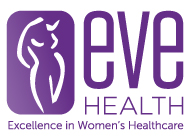Pregnancy is such an exciting and somewhat confusing time… Not only are you dealing with hormonal and physical changes, you are also trying to understand what you can and can’t do, including food.
An Accredited Practicing Dietitian can help support you along your individual pregnancy journey to make optimal nutritional choices. Dietitians are the experts in nutrition and can help to translate the latest evidence based guidelines into your daily food choices during pregnancy.
Nutrition tip 1: Eat a healthy, balanced and wholesome diet
The best tip to nutrition during pregnancy is choosing more fresh produce rather than processed foods including plenty of vegetables, fruit, whole grains, dairy, lean protein and healthy fats.
Based from the Australian Guidelines, daily aim for:
5 serves of vegetables
2 serves of fruit
4 ½ – 8 ½ serves of wholegrains
3 ½ serves of lean meat, fish, poultry or other protein
2 ½ serves of dairy and alternatives (Calcium fortified)
Limiting energy, processed foods can help to prevent excessive weight gain y. Eating a more nutrient dense wholesome diet from the above guidelines will assist in meeting micronutrient targets.
Weight gain is a natural and healthy part of pregnancy. It is important to monitor your weight with your health team as too little and too much weight gain can result in complications.
During pregnancy there is a natural resistance to the hormone insulin, so it’s important to ensure a diet inclusive of low GI carbohydrates (eg high fibre starchy vegetables, wholegrain breads and cereals) and low in high-GI carbohydrates (sugars, low fibre highly processed breads and cereals). It is important to consume low GI carbohydrates and protein at each meal and snacks, to control sugar cravings.
Nutrition tip 2: Increase these special micronutrients
Although a balanced diet will help to make sure you meet all of your macro and micronutrient requirements being mindful of these following micronutrients is also important.
Folate
Every one would be familiar with the importance of this micronutrient for reducing the risk of growth abnormalities. Prior to conception and throughout pregnancy a 400 microgram supplement of folate is recommended for women. In addition to this supplement, green leafy vegetables, legumes, nuts and fortified breads and cereals contain folate.
Iodine
This micronutrient is essential for cognitive development for the baby and therefore it is recommended that a supplement containing 150 micrograms of Iodine is taken for pregnant and breastfeeding women.
Iron
Iron requirements also increase during pregnancy to cope with the increased production of red blood cells to supply the baby with oxygen. Animal Sources (Haem Iron) is absorbed more efficiently than plant sources (non haem iron). You can increase your absorption of non haem iron in green leafy vegetables, tofu and beans by having a source of Vitamin C including in the meal as well.
Nutrition tip 3: Watch out for Food Hygiene and Safety
If you are keeping food hot, keep it very hot (60°C or hotter). Keep cold food cold (5°C or colder).
Avoid:
- Ready to eat foods from salad bars, sandwich bars, delis and buffets as they are left out, at room temperature.
- Soft Boiled or raw eggs (Salmonella)
- Soft and semi soft cheeses, eg. brie, camembert, ricotta, blue, fetta
- Soft serve ice cream
- unpasteurised dairy products
- Pate
- Chilled seafood
- Pre-prepared salads with dressings and fruit salads sitting for extended periods of time
- Cold meats, including chicken
- Deli meats
This blog was written by Desi Carlos, Dietitian APD AN
www.treeoflifenutrition.com.au
Comments are closed.
